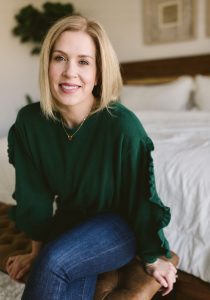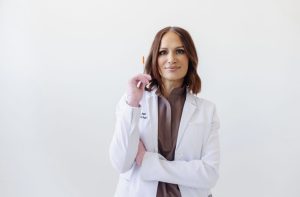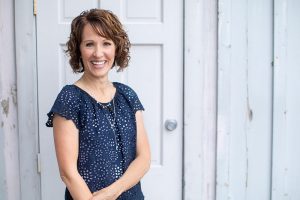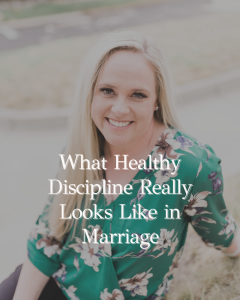
Let’s talk hormones and what your hormones are doing to you sex drive! With my special guest, Ashlee Sorensen, we talk everything hormones and what we can expect as we age and what we can do about it. Did you know that unlike men, women never age out of sex? Pretty good news, right? Listen for more great information about hormones and sex.
Ashlee is a Menstrual and Hormone Coach and loves teaching women how to have optimal hormone health including painless periods, no PMS, and a seamless transition into menopause. Her passion is educating women on how to use their hormones to maximize everything from nutrition to sexual health. Ashlee believes that for far too long women have been taught that their hormones are a problem or a weakness. Her message to women is that your hormones are not a problem, they are the solution to everything you want. Your hormones are what make you so amazing!
Show Notes:
Follow Amanda on Facebook and Instagram.
Join Amanda’s Private Facebook Group.
References for this episode:
Exercise and Hormones Masterclass
Click this link to find a Functional Practitioner in your area
Show Summary:
Welcome to Sex for Saints, the Christian women’s guide to great sex. I am your host, certified sex and marriage coach Amanda Lauder. This is episode 202: How hormones affect your libido and interview with Ashlee Sorensen.
Amanda: Welcome back to the podcast everyone. I am so excited to have you here. And have you listened to this awesome interview with my friend Ashlee Sorensen, who is a hormone and period coach, but before we get to that, I just wanted to make a couple of announcements, just so you’re aware.
My Embrace you Elite Society is now open to the public so you can go to www.amandalouder.com and click on Work with Me up in the menu and then Coaching to learn all about it.
Up in that menu, you will also see my Retreats. So I have the Couples Retreat and the next Women’s Retreat open for registration. So go click there, learn all about it. I would love to have you. But let’s get to my interview with Ashlee Sorenson.
Amanda: Welcome to the podcast, everyone. I am so excited to introduce you to my friend, Ashlee Sorenson. Ashlee and I met a few months ago when we were both on a podcast about bold niches. Ashlee is also a coach. She is a period and hormone coach, and I knew instantly that I needed to have her on the podcast to talk all things hormones, because one of the biggest questions I get from women is, I just think my hormones are off and that’s why I don’t have a libido anymore.
And so we want to talk about that part of it because I’m a big proponent that mindset is a big part of our ability to have desire, but if our hormones are off then that definitely plays a big part of it too. So welcome to the podcast, Ashlee.
Ashlee: Thank you! So excited to be here with you, Amanda.
Amanda: Okay. So why don’t you introduce yourself to my audience a little bit.
Ashlee: Okay. Yes. My name is Ashlee Sorenson and yes, you heard correctly, I am a period and hormone coach and it is the best thing ever. I love helping educate women on how to really leverage their hormones and understand them and use them to their advantage. We hear so much narrative around how our hormones are a problem that we need to overcome. They’re kind of the curse and really our hormones are the solution to pretty much anything that we want. We just need to understand how to read the symptoms that our body is sending us. We need to know when something is off and we can get familiar with our bodies well enough that we can see these signs or symptoms that it’s sending and then we can take care of ourselves and really thrive at any age in our lives. So that’s what I do is I help women. I help them understand their hormones, educate them on their hormones and how to balance them using food and exercise and supplement, mindset, all the good stuff.
Amanda: Okay. So tell us, like, how did you get into this? What is your background?
Ashlee: Okay, so I have endometriosis. I was diagnosed when I was 21. I’m 42 now. And so I’ve always had really painful periods. And so my hormones have always played a big part in my life. I have known about hormones since I was 14. I understood what was happening in my body. And so I’ve always been interested in learning about them. And I used life coaching and mindset work. I’m also certified through the life coach school, just like you, and I used mindset work to help me cope with my pain of endometriosis, my infertility. I thought that the mindset aspect was really fascinating and amazing. And as I learned to cope with the physical symptoms that I had of endometriosis and started studying the way that nutrition played a part in the way I was feeling, I just got so into it.
And I was like, I would love for women to know this information and not just women with endometriosis, but all women. I think a lot of times we don’t think of our hormones because it’s not something we can see.
Amanda: We don’t think about them until we think it’s a problem.
Ashlee: Yeah, exactly. Exactly. And even when we think it’s the problem, we don’t realize that it a lot of times is hormonal. We think, Oh, I’m gaining weight, I need to count calories. I need to restrict myself. And it’s like, well, because there’s other hormones, not just our sex hormones, right?
It’s also the insulin and the {{unintelligible}}. And so, you know, a lot of times we just don’t even think about our hormones.
That led me to Health Coach Institute where I did a special course in nutrition and hormones. That just sent me on my path and it took me a while to completely dedicate myself to hormones and periods.
You and I have talked about this, you know, the whole bold niche thing, but I’m so glad I did, because it is the most rewarding.
Amanda: It’s so rewarding when we can help people in these ways that we are so passionate about.
So let’s get into it a little bit. That’s one of the biggest things I hear from women is they think their libido is off and they just need to go get their hormones tested. So if someone were to tell you that, because I tend to have a different approach, but I know that hormones are important too, but how would you answer that?
Ashlee: So if a woman were to say, I think my hormones are off, I have no libido, I would want to know more about that. What are your thoughts about sex or intimacy? Do you have a desire to be intimate? Is there a physical issue like pain with intercourse or dryness? Are you unable to orgasm? What are the other symptoms?
Because there’s lots of libido or decline in libido, but then there’s also other things that contribute, like the mindset and the way that you were conditioned to think about sex, our cultural beliefs.
Amanda: All the things I talk about all the time.
Ashlee: So there’s all of those things that can contribute to low libido, but it’s really easy to blame it on hormones. It’s really easy to say, I’m overweight because of my thyroid. I hear that constantly, constantly.
And it’s like, well, maybe that could be a part of it, you know?
So yeah, your low libido, maybe hormone related, but not always. And it can also be just a tiny piece of the puzzle.
Amanda: Yes. I totally agree with that. What are some physical symptoms that someone would have if their hormones are off that’s causing libido issues? You mentioned dryness.
Ashlee: Yes. So vaginal dryness is a big one. So as we age, our vaginal walls just are not producing as much lubrication as they did when we were in our twenties, early thirties. And so it causes that dryness, which then is really uncomfortable. You can actually get little fissures or little tiny cuts in the vaginal skin. There’s vaginal atrophy, shrinking of the vaginal walls, thinning of the vaginal walls. All of these things are normal as we age, it doesn’t mean that there’s anything wrong with you.
But then there’s also the narrative around aging, which is something that I talk about with my clients a lot of the time, because there’s also that, oh, I’m getting older and now I have different symptoms.
We have to learn to care for a different body, really like menopause, peri-menopause, it’s like a second puberty and you really have to learn how to care for our body all over again.
And the vaginal dryness, vaginal and clitoral atrophy is a big deal and needs to be addressed. Just understanding that that’s not a problem, unless you make it a problem.
I think that we make it a problem by ignoring.
Amanda: Yes, we do.
Ashlee: Don’t ignore it, understand that this is happening and then take the steps to take care of yourself so that you can enjoy sex and that it can be fun and enjoyable. There’s no reason why it should be uncomfortable or you shouldn’t want it after a certain age. Sex is something that should be enjoyed throughout your life.
Amanda: I wholeheartedly agree with that. I think we think as we get older, Oh, it’s just not that big of a deal anymore. But as women, as long as we’re taking care of ourselves, we don’t age out of sex. Usually most men will stop having erections without some sort of help or something. But as women, we don’t age out as long as we continue to take care of ourselves.
Ashlee: Exactly. Yes. And so then it’s like, okay, they will then how do I take care of myself? I like to say, how do I take care down there?
People say, Oh, I don’t even, like, really? You brought this up during the Retreat that you just had, that I was so privileged to go to. You ask, Do you look down there? Do you understand your own anatomy and what’s happening? Do you know the difference between vagina and vulva?
Now is the time. It’s not too late to understand your body so that you can take care of it.
Amanda: And if you get to know your own body, and when there are changes, you will also understand them and notice that actually there is a change.
Ashlee: Exactly.
Amanda: So if you have someone coming to you, that says, Okay, I’m having pain with intercourse, maybe some dryness or something. What are some things that they can do with that?
Ashlee: Something that I love and I use it myself as a topical DHEA. DHEA is a hormone. The brand that I love is called Jolva and it was designed by Dr. Anna Cabeca, who’s one of my mentors. Basically it’s a rejuvenating cream for the vulva. And so it plumps the skin because as you age, if you take a mirror and look down there, you’ll see that the vaginal lips are thin. They’re getting thinner. They’re not as pink and they’re not as plump. No different from the lips on your face.
Amanda: It’s just what happens with age.
Ashlee: And so just like we’re going to get fine lines and wrinkles around our mouth and we can get dryness there. Same thing with our lower lips. So you need to care for them just as much as you would the lips on your face. So using this topical DHEA and you use it from the clirtoris to the anus once or twice a day, just a pea sized amount, and that’s going to help you with the vaginal moisture and really rejuvenate the skin of the vulva.
It’s amazing.
Amanda: And do you have a link for that that we can put in the show notes?
Ashlee: Yes, absolutely.
And then I use just coconut or some kind of lubricant, that feels good for you to add some moisture. There’s absolutely no shame in that. I think that being open with your partner about what’s happening and what you’re experiencing, I think that that’s such a big deal.
Amanda: And don’t have intercourse if there’s pain. Make sure that you’re taking care of that. We don’t want to push through the pain.
Ashlee: No, it’s so not worth it. And you end up resenting sex. You end up resenting your partner and you’re not honoring what you need and what you want and just nothing good comes from that.
And so just taking good care of the vaginal lips and talking with your doctor or your practitioner, if it still is a problem. There may need to be some hormone replacement therapy. You might need a little bit more estrogen as you age and that’s okay, but nobody can help you and you can’t help yourself unless you’re willing to be open and face what’s staring back at you. You know what I mean?
Amanda: Yeah. I mean, I’m 42 as well, so I can definitely see changes as I age. And I have clients from their twenties all the way up, my oldest client was 72. So we’re all dealing with different things in different ways. That’s one of the things that we address in coaching is how we’re aging and what that means for us and for our body.
Ashlee: Absolutely. Yeah. And some things that I love about the Jolva is that it also helps with urinary incontinence or, when you sneeze and pee a little. Or you jump on the trampoline and pee a little, you know?
And so the Jolva is amazing for that too.
Going back to what I said before, you can’t care for a 40, 50, 60, 70 year old body, the way that you did when you were 20 and 30, it just doesn’t work.
Also, taking care, not to use products that are scented. There’s no need for that down there.
Our vagina is self-cleaning. You don’t need to add soap, just use water in your hand. And don’t add in any kind of fragrance. That’s just going to set off a yeast infection or a UTI. That can cause issues.
Just simple things like being careful of your sugar intake to help with your sex drive and libido.
Amanda: Talk to me about testosterone. I know as women, we have significantly less than men and as we age, it tends to go down even further. But one of the things that I hear a lot from clients is, if I have desire, it’s about once a month, which makes me ask if they’ve tracked it? That’s probably when you’re ovulating and your testosterone peaks. Right? Talk to me a little bit more about that.
Ashlee: We do have a lot less testosterone than men, but testosterone is important because it does help us build lean muscle and helps with our libido and sex drive and it helps with motivation. I mean, it has a lot of really great benefits to it.
And tracking your cycle and your symptoms is the best kind of, I call it, ‘may’ search that a woman can do, and you’re doing it for yourself. You’re doing it for you. You’re keeping track of your symptoms and what you’re experiencing so that you can take better care of yourself. And so why wouldn’t you want to do it?
So keep track of when your libido peaks and if it’s right around ovulation? Is it right before I start my period? Keep track of those things and it’s sometimes necessary to supplement your testosterone, to have bioidentical hormone replacement therapy and that freaks a lot of women out. They think, Great, now I’m going to grow facial hair and get an Adam’s apple. But if you’re going to a physician who knows what they’re doing and is prescribing the right amount for you, that’s not going to be true. You’re going to feel so much better. You’re going to have that sex drive. You’re going to have more energy and motivation. So don’t be scared of that. Just make sure that you are going to a doctor that specializes in hormone replacement therapy, and really can give you what your body needs.
Amanda: How would we find that?
Ashlee: I only recommend going to a functional medicine practitioner because they’re addressing the root of the problem, not just the symptoms. And that’s a big part of my coaching practice is we’re not looking for band-aids here, we want to find out what’s causing the symptom. We’ll share the link for functional medicine practitioners, where you can find one in your area and then do your research, talk to your friends and ask have you tried a doctor that you love for hormones, get on Facebook groups to find a doctor, read reviews on Google, whatever you can, just be proactive. This is all part of having an active relationship with your body versus a passive relationship with your body. Really get in there, be proactive about it, do your homework and voice your concerns during the conversation with the physician, be your own health advocate and ask for what you need and what you want. It’s important!
Amanda: I think so many times we hold back, we are embarrassed about things and we don’t say everything that we need to say to give the doctors the information they need to really, really help you so that’s really good advice.
Okay. So I know you have some really fun classes that you teach. Tell me about those.
Ashlee: Yes. I love to teach and, of course, I love to teach about hormones and periods, so I developed my class Cycle Strategy One-on-One, which is my signature course that I released about a year ago. And we talk about the four phases of the menstrual cycle and what is happening with the hormones during those four phases. And how that affects your mood, your energy, your sex drive, motivation, your skin, everything, and what you can do to care for yourself during these different phases of the cycle. So this is where I recommend starting if you really want to get to know your hormones and your cycle and understand what you’re experiencing at a deeper level.
And then I also have another class that I released in the fall called Hormones and Exercise which is all about how to exercise for optimal hormone health. Make sure that you’re exercising in a way that supports your hormones and helps you burn fat instead of store fat. We’re taught a lot that more is good, you got to push yourself hard and you got to push through the pain. No matter where you are in your cycle, you got to go, go, go, right? Your period is no reason to slow down. And I have a very different view on that. And I talk all about that in both of those classes.
Amanda: That’s awesome. And so where can they find out more about those classes?
Ashlee: I used to only do them live, but now I’ve made them available on demand. So you can purchase them for $28 each just by clicking on the link in my bio on Instagram. That link will also be in the show notes.
Amanda: And your Instagram is?
Ashlee: It’s @ashleesorensencoaching
Amanda: Awesome. And you offer a 30 minute private session with every single one of those, right?
Ashlee: Yes, everybody that purchases the class gets a 30-minute private session with me because it’s one thing to consume information, anybody can do that, but it’s what you do with the information after the class is over, that’s what matters. And so you and I just sit down together on a zoom call and talk about how to apply the information in the class to your real life scenario and answer any questions that you have. It’s $28. It’s a total no brainer, right?
Amanda: Yes. And if you happen to be a client of mine in my membership, then Ashlee’s going to be teaching a workshop in March for the membership all about this. So you’re going to get that as part of my membership. So if you have not joined my membership yet, I highly recommend you do so just to listen to Ashlee, plus everything else that you’re going to get in it.
That membership is now open to the public so join now!
Thank you so much, Ashlee, for coming on! You are a wealth of information. So go follow her. She has a really fun Instagram. She does some great reels. They are very entertaining. I love them. And she talks about everything. I mean, she talks about boobs all the time. She talks about hormones, periods, all of that kind of stuff. Information that as women, we absolutely need so that we can be living our best life. Thanks Ashlee.
Ashlee: Thanks Amanda.



